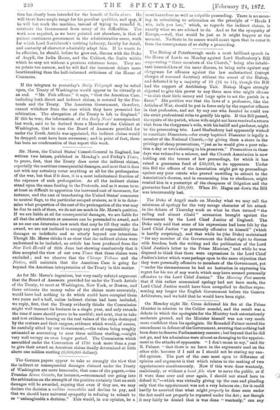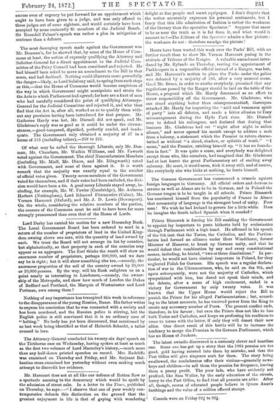On Monday night Mr. Cross delivered his fire at the
Prime Minister in relation to the Collier scandal, and the result was a. debate in which the apologists for the Ministry took ostentatiously moderate ground, and the Minister himself was not very much more confident than his apologists. Sir Roundell Palmer moved the- amendment in defence of the Government, averring that nothing had been done to deserve Parliamentary censure ; but beyond that he did not go, and his admissions were almost as damaging to the appoint- ment as the attacks of opponents. "I don't mean to say," said Sir R. Palmer, "that there is no force in the arguments used on the other side, because if I said so I should not be stating my can- did opinion. The part of the case most open to difference of opinion and argument is that which relates to the making of two appointments simultaneously. Now if this were done wantonly, maliciously, or without a bond fide view to serve the public, or if it were done over and over again, I should not stand here to defend it,"—which was virtually giving up the case and pleading only that the appointment was not a very heinous sin ; for it could hardly be asserted that what might properly be done once under the Act could not properly be repeated under the Act ; nor though it may fairly be denied that is was done "wantonly," can any excuse even of urgency be put forward for an appointment which ought to have been given to a judge, and was only offered to three judges out of some eighteen, and would certainly have been accepted by some eminently fit members of the Judicial Bench. Sir Roundell Palmer's speech was rather a plea in mitigation of sentence than a defence.



































 Previous page
Previous page